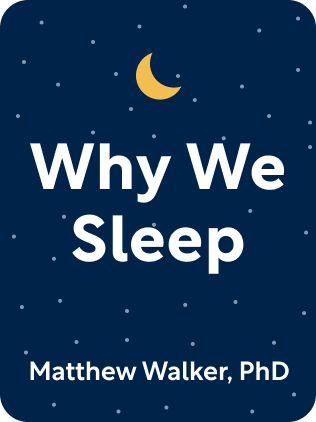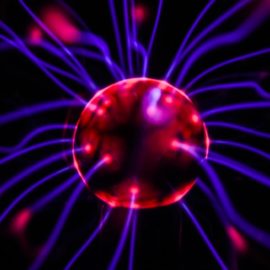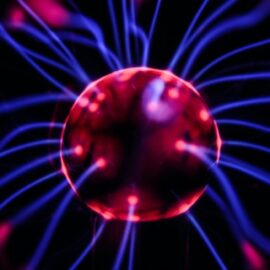

This article is an excerpt from the Shortform summary of "Why We Sleep" by Matthew Walker. Shortform has the world's best summaries of books you should be reading.
Like this article? Sign up for a free trial here .
What exactly are dreams? What is the science behind dreams? How can scientists research them?
In his book Why We Sleep, Matthew Walker discusses dreams from a scientific point of view. He goes over older theories related to dreaming and explains what happens during the REM cycle.
Here is what Walker has to say on the science behind dreams.
What Are Dreams?
Dreaming is a bizarre experience. You’re unconscious, but you perceive intense vivid sensations and hallucinate things that aren’t there. You feel like you’re moving in the world, but your muscles are in a state of paralysis. You remember faces and memories that you haven’t thought about for years, maybe decades. You have no control over your emotions, swinging from intense rage and jealousy to exuberance. Finally, when you wake up, you promptly forget everything. If you experienced all of this while awake, you’d think you were having a psychosis episode.
It’s not surprising then that dreaming has had a complicated history. Walker explains that in the ancient past, Egyptians and Greeks wondered if dreams were divine gifts from gods.
Freud helped dispel this myth, firmly centering dreaming within the human brain. He considered dreams as expressions of repressed desires, and he built a psychological movement around interpreting dreams as such.
- The critical flaw in Freudian analysis was its unprovability—the interpretation methods were so subjective that different approaches yielded different results, and there was no strict hypothesis that was testable.
- Furthermore, the interpretations were horoscopically vague, thus seeming full of significance but not providing any practical insight (for example, “your dream is reminding you of how little time you have to do all the things you want to do.” Pretty much everyone feels this way.)
| The Latest Dream Theories Since Freud’s time, there have been several theories about the purpose of dreaming, such as memory consolidation (dreams are replays of waking life), activation synthesis (dreams enable us to make connections between memories), and emotion regulation (dreams are a manifestation of, and some sort of therapy for, our emotions). Answering the question of why we dream isn’t straightforward because dreams may serve many purposes. As one researcher puts it, “Asking what dreams are for is like asking what waking thought is for.” Two of the newer theories that emerged in 2021 are: Network exploration to understand possibilities (NEXTUP). In When Brains Dream, sleep researchers Antonio Zadra and Robert Stickgold theorize that dreams, and not just the sleep state, are important for memory consolidation, allowing dreamers to create links between themes and memories and using narrative structures to help the brain figure out which of these associations may be useful. Overfitted brain hypothesis. Another theory suggests that dreams in all their strangeness give the human brain a more well-rounded view of the world. This was inspired by artificial intelligence, which tends to have a bias toward the data it’s trained on. The human brain is trained to process similar data every day. |
The Science of Dreaming
To understand the science of dreams, we must understand the concept of REM sleep: most vivid dreaming happens during REM sleep (though NREM sleep has some vague non-vivid dreaming, like “I was thinking about clouds”).
During REM dreaming, Walker says that your visual, motor, memory, and emotional areas of the brain are active. Your prefrontal cortex (governing rationality) is muted.
He says it may even be possible to predict what you’re dreaming about through fMRI.
- To build a profile of your brain, you look at different images while awake, and the fMRI signature is captured.
- Then as you dream, your dreaming fMRI is matched to your awake fMRI profiles, predicting what you’re currently looking at while dreaming.
We often think about the meanings of our dreams. Do dreams merely replay events of the day, or do they reflect our emotional concerns?
- A study showed that only a small fraction (1-2%) of dreams replay the literal events of the day.
- A greater fraction (~45%) reflect our underlying emotional worries we have while awake.
| The Ethics of Dream Research Advances in dream research have now made it possible to predict and, perhaps, eventually control dreams. While the pursuit of new knowledge is important, developments in the field of dream research do raise some questions and concerns: The importance of informed consent—a study participant may be able to give her consent while fully conscious, but won’t have any control over what researchers could access in her brain while she’s asleep. Participants could unwittingly reveal highly personal and sensitive information that they would not have revealed while awake. The ethics of dream manipulation—dreams operate outside the realm of normal ethics, but what happens when subjects are manipulated into dreaming something they don’t want to dream about? We could argue that tricking someone into doing something in waking life is unethical, but tricking someone into doing something in their dreams—which theoretically has no impact on real life—lies outside any ethical or moral boundaries. It’s thus critical for scientists to establish policies to protect study participants, ensuring that they’re fully informed about experiments and the subsequent use of their data. |

———End of Preview———
Like what you just read? Read the rest of the world's best summary of Matthew Walker's "Why We Sleep" at Shortform .
Here's what you'll find in our full Why We Sleep summary :
- Why you need way more sleep than you're currently getting
- How your brain rejuvenates itself during sleep, and why nothing can substitute for sleep
- The 11-item checklist to get more restful sleep today






